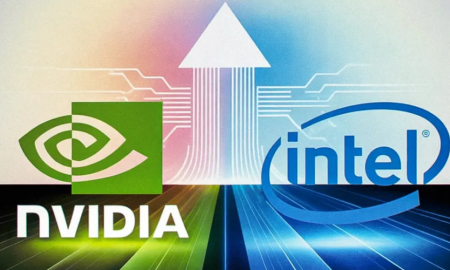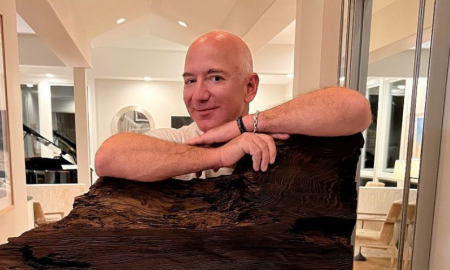
Invest or Pay Off Debt: Which One Should You Do First?

What came first, the chicken or the egg? This causality dilemma is very much relevant to our finances, especially when it comes to deciding whether you should invest or pay off your debt first. Both are necessary and equally admirable accomplishments that have incredible payoffs in the long run– so which course of action should you take?

Paying off debt first gives you more freedom to focus on other areas of personal finance like setting up an emergency fund, having more money to save for retirement and getting better terms on car loan or mortgage
Paying off Debt vs. Investing
There’s obviously a great advantage of paying off your debt first and becoming completely stress-free for the rest of your life. This gives you more freedom to focus on other areas of personal finance like setting up an emergency fund, having more money to save for retirement and getting better terms on car loan or mortgage. Paying off your debt will also make it easier to overcome an economic recession and achieve overall financial satisfaction.
But investing has some serious benefits as well. It is one of the most powerful sources of passive income that can protect you against any financial crisis and help grow your nest egg for old age. And what if there was a way to make enough money from investment to be able to pay off your debt much faster. Wouldn’t that make the former a more urgent priority?
The answer isn’t as black and white as it may seem. An intelligent individual will look the following two variables before choosing a sensible course of action:
- The after-tax interest rate on your debt payments
- The after-tax return rate on your investment earnings
These variables are extremely important in determining which course of action will save you most amount of money. For example, if your investment earnings are higher than the interest rate on debt, it would make sense to invest. Conversely, if the investment returns are lower, you should pay off your debt first.
Investment guru Warren Buffett is the perfect example for this. The billionaire decided to put off mortgage payments on his home in Omaha, Nebraska until recently, and chose to invest the money to make a much larger profits over the long run.
But not everyone should aspire to become Warren Buffet – at least not when it comes to paying off loans. Once you’ve considered risk-adjustment for your financial situation, it may not make sense to put off loan payments in favor of a bigger investment portfolio. But you don’t necessarily have to choose one over the other.
Plan of Action

Investment is one of the most powerful sources of passive income that can protect you against any financial crisis and help grow your nest egg for old age
Most sensible financial planners recommend following a hierarchy when it comes to debt and investment:
Start by setting up a retirement account that you may be eligible for at work (such as the 401(k) plan and contribute up to the free matching amount that you receive from your employer. This amount can range from 50 per cent to 150 per cent of the amount you contribute up to a certain limit.
With a retirement account in place, the next step on the action plan is to set up an emergency fund that will act as a security in case of a financial disaster. It may help to get a Roth IRA for yourself and your partner if you’re eligible for it.
Next comes paying off any high-interest liabilities like student loan and credit card debt. If you have both, choose to pay off the student loan first because it can become hard to get rid of if you ever find yourself bankrupt.
Once you’ve paid off all your debt, come back to your 401(k) and increase your contribution to the maximum amount permissible. You can even add another type of de facto IRA called Health Savings Accounts (HSA) to supplement your retirement savings.
Now start building your investment portfolio by investing in various asset classes like dividend reinvestment plans, mutual fund accounts and brokerage accounts. You can even buy real estate assets like warehouses, office buildings or apartment buildings as a lucrative investment.
This plan of action ensures that you set up a financial cushion for emergencies and retirement before paying off high interest debt, and then moving to riskier investments once you are completely debt-free.
More in Investments
-
`
Will Bitcoin Crash to $0 or Hit $500K in a Decade?
Bitcoin’s future divides analysts into two extreme camps. Some see it becoming one of the most valuable financial assets in history....
October 12, 2025 -
`
Can Anyone Really Blame Mariah Carey for ‘Leaving’ the Real World?
Mariah Carey isn’t like the rest of us. From the moment she opens her mouth and that voice pours out, she...
October 10, 2025 -
`
Intel Invests in Nvidia, but Ratings Remain Unchanged
Intel’s stock jumped more than 30% after news broke that Nvidia poured $5 billion into the company. The rally sparked renewed...
October 5, 2025 -
`
Homeownership vs. Real Estate Investment: What’s Better?
Homeownership has long been seen as the American dream. But today, more people are asking: Is it really the smartest way...
October 3, 2025 -
`
Why the Armani Fashion Empire Is Set for an IPO
Giorgio Armani, one of the most iconic names in global fashion, left behind a detailed plan for the future of his...
September 27, 2025 -
`
Why Do Pokémon Cards Outperform the S&P 500 As an Investment?
Pokémon cards have outperformed the stock market by a mile. Since 2004, they have delivered a staggering 3,821% return, according to...
September 27, 2025 -
`
America’s Billionaires Get Older—Millennials Wait for Wealth Transfer
Many of today’s billionaires don’t match the youthful tech-founder image often portrayed. While names like Elon Musk, Sam Altman, and Mark...
September 21, 2025 -
`
Can President Trump Legally Fire Fed Governor Lisa Cook?
Lisa Cook is right in the middle of one of the most explosive legal battles in Washington. President Trump wants her...
September 20, 2025 -
`
Jeff Bezos’ Advice for Millennials Who Want Financial Success
Millennials today have grown up in a world where instant access to products and services is the norm. From two-day deliveries...
September 13, 2025















You must be logged in to post a comment Login